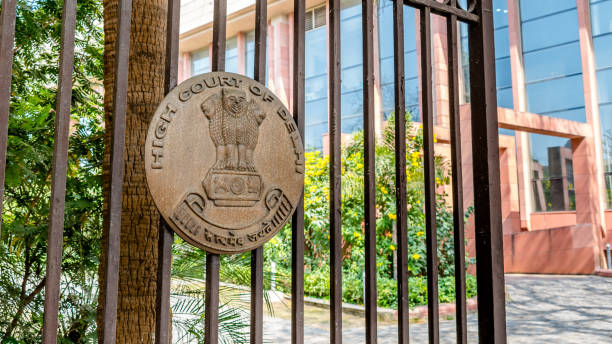NAVIGATING THE COMMERCIAL COURTS ACT: APPEALABILITY OF PLAINT REJECTION ORDERS

INTRODUCTION
This article examines the Judgment of the Supreme Court of India in MITC Rolling Mills Private Limited and Anr. vs. M/S. Renuka Realtors and Ors. (2025 INSC 1300), delivered on November 10, 2025. The Bench, comprising Justices Vikram Nath and Sandeep Mehta, addressed a crucial procedural question concerning the appealability of an order rejecting a plaint under the Commercial Courts Act, 2015.
BRIEF FACTS
Suit Filing and Rejection: MITC Rolling Mills Private Limited (the Appellant-Company) instituted Commercial Suit No. 06 of 2021 before the District Judge, Nashik, seeking recovery of an aggregate sum of over Rs. 2.52 crores for the supply of TMT/Fe-500 material. The Respondents moved an application under Order VII Rule 11 of the Code of Civil Procedure, 1908 (CPC), arguing that the Appellant had not undertaken the mandatory Pre-Institution Mediation and Settlement (PIMS) required under Section 12A of the Commercial Courts Act, 2015 (CCA, 2015). The trial court accepted this application and rejected the plaint on November 10, 2022.
Appeal to High Court: The Appellant-Company challenged the rejection of the plaint by preferring an appeal under Section 13(1A) of the CCA, 2015.
High Court Ruling: The High Court of Judicature at Bombay disposed of the appeal as a non-suit simpliciter, holding that the appeal was non-maintainable under Section 13(1A) of the CCA, 2015. The High Court reasoned that an order rejecting a plaint does not fall within the ambit of Order XLIII of CPC, and thus, a challenge could not be maintained under Section 13(1A) read with its proviso. This order of the High Court was challenged before the Supreme Court.
ISSUES OF LAW
The controversy essentially hinged around a single question:
Whether an order rejecting the plaint under Order VII Rule 11 of the CPC is appealable under Section 13(1A) of the Commercial Courts Act, 2015.
ANALYSIS OF THE JUDGMENT
The Supreme Court allowed the Appeal, quashing the High Court’s order and holding the Appeal to be maintainable. The analysis was based on a harmonious reading of the CPC and the CCA, 2015:
Rejection of Plaint is a ‘Decree’: The Court relied on the definition of “decree” in Section 2(2) of the CPC, which explicitly states that a decree is a formal expression of an adjudication that conclusively determines the rights of the parties and is “deemed to include the rejection of a plaint”. Since a rejection of a plaint under Order VII Rule 11 finally decides the lis before the court, it unequivocally amounts to a decree. The Court referred to its earlier decision in Shamsher Singh v. Rajinder Prashad to affirm this position.
Interpretation of Section 13(1A) of CCA, 2015:
Main Provision vs. Proviso: Section 13(1A) contemplates appeals against ‘judgments’ or ‘orders’ of a Commercial Court to the Commercial Appellate Division. The Court emphasized that the proviso, which restricts appeals to only those orders enumerated under Order XLIII of the CPC, must be construed as operating as an exception and restricting appeals only against interlocutory orders.
Decree is not an Order under Order XLIII: Since the rejection of a plaint is a decree and a final adjudication , it falls under the main provision of Section 13(1A) for appeal against a ‘judgment’ or ‘decree’ (implied in the term ‘judgment’ within this context). The proviso, which deals with restricting appeals against interlocutory orders, cannot curtail the appealability of a final decree.
Distinguishing Precedent: The Court distinguished the precedent relied upon by the Respondents, Bank of India v. Maruti Civil Works 2023 SCC OnLine Bom 2667,noting that the latter case involved a challenge to an order rejecting an application under Order VII Rule 10 or 11(d) of the CPC. An order rejecting an application is merely an interlocutory order that is not enumerated in Order XLIII of the CPC, unlike the final order of rejection of the plaint, which is a deemed decree.
Remedy for Aggrieved Plaintiff: The Court concluded that a plaintiff aggrieved by the final order rejecting the plaint under Order VII Rule 11 CPC cannot be left remediless or forced to file a fresh suit for challenging the same.
CONCLUSION
The Supreme Court clearly established that an order rejecting a plaint under Order VII Rule 11 of the CPC is a “deemed decree” under Section 2(2) CPC. Consequently, it is appealable under the main provision of Section 13(1A) of the CCA, 2015, and the proviso restricting appeals to orders listed in Order XLIII of the CPC does not apply to it. By holding the appeal before the High Court maintainable, the Supreme Court ensured that the aggrieved plaintiff has the right to challenge the final dismissal of their suit on its merits.
Sushila Ram Varma
Advocate and Chief Consultant
The Indian Lawyer & Allied Services
Please log onto our YouTube channel, The Indian Lawyer Legal Tips, to learn about various aspects of the law. Our latest Video titled “Rights of Husband in False Matrimonial Cases | 498A Misuse | 2025 Judgments Explained” can be viewed at the Link below:





































Leave a Reply